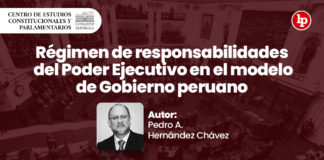Fundamento destacado: 29. Según el gobierno, el derecho a participar en persona en la audiencia no tiene el carácter absoluto que aparentemente es atribuido a ella la Comisión en su informe; Tiene que reconciliarse, a través del golpe de un ‘equilibrio razonable’, con el interés público y en particular los intereses de la justicia.
No es la función del tribunal elaborar una teoría general en esta área (ver Mutatis mutandis, el juicio de Deweer del 27 de febrero de 1980, Serie A no. 35, p. 25, párr. 49). Como lo señaló el gobierno, la imposibilidad de celebrar un juicio por defecto puede paralizar la conducta de los procedimientos penales, ya que puede llevar, por ejemplo, a la dispersión de la evidencia, la expiración del tiempo para el enjuiciamiento o un aborto espontáneo de la justicia. Sin embargo, en las circunstancias del caso, este hecho no parece que el tribunal sea de tal naturaleza que justifique una pérdida completa e irreparable del derecho a participar en la audiencia. Cuando la ley doméstica permite que se celebre un juicio a pesar de la ausencia de una persona ‘acusada de un delito penal’ que está en la posición del Sr. Colozza, esa persona debería, una vez que se dé cuenta de los procedimientos, poder obtener, de un tribunal que lo ha escuchado, una nueva determinación de los méritos del cargo.
[Traducido por LP]
29. According to the Government, the right to take part in person in the hearing does not have the absolute character which is apparently attributed to it by the Commission in its report; it has to be reconciled, through the striking of a «reasonable balance», with the public interest and notably the interests of justice.
It is not the Court’s function to elaborate a general theory in this area (see, mutatis mutandis, the Deweer judgment of 27 February 1980, Series A no. 35, p. 25, para. 49). As was pointed out by the Government, the impossibility of holding a trial by default may paralyse the conduct of criminal proceedings, in that it may lead, for example, to dispersal of the evidence, expiry of the time-limit for prosecution or a miscarriage of justice. However, in the circumstances of the case, this fact does not appear to the Court to be of such a nature as to justify a complete and irreparable loss of the entitlement to take part in the hearing. When domestic law permits a trial to be held notwithstanding the absence of a person «charged with a criminal offence» who is in Mr. Colozza’s position, that person should, once he becomes aware of the proceedings, be able to obtain, from a court which has heard him, a fresh determination of the merits of the charge.
[Idioma original]
COURT (CHAMBER)
CASE OF COLOZZA v. ITALY
(Application no. 9024/80)
JUDGMENT
STRASBOURG
12 February 1985
In the Colozza case,
The European Court of Human Rights, sitting, in accordance with Article 43 (art. 43) of the Convention for the Protection of Human Rights and Fundamental Freedoms («the Convention») and the relevant provisions of the Rules of Court, as a Chamber composed of the following judges:
Mr. G. Wiarda, President,
Mr. J. Cremona,
Mr. Thór Vilhjálmsson,
Mr. E. García de Enterría,
Mr. L.-E. Pettiti,
Mr. C. Russo,
Mr. J. Gersing,
and also of Mr. M.-A. Eissen, Registrar, and Mr. H. Petzold, Deputy Registrar,
Having deliberated in private on 28 September 1984 and on 22 January 1985,
Delivers the following judgment, which was adopted on the last-mentioned date:
PROCEDURE
1. The present case was referred to the Court by the European Commission of Human Rights («the Commission») on 18 July 1983, within the three-month period laid down by Article 32 para. 1 and Article 47 (art. 32-1, art. 47) of the Convention. The case originated in an application (no. 9024/80) against the Italian Republic lodged with the Commission on 5 May 1980 under Article 25 (art. 25) by Mr. Giacinto Colozza, an Italian national. The Commission had ordered the joinder of this application with another (no. 9317/81), lodged against the same State on 21 July 1978 by Mr. Pedro Rubinat, a Spanish national.
2. The Commission’s request referred to Articles 44 and 48 (art. 44, art. 48) and to the declaration whereby Italy recognised the compulsory jurisdiction of the Court (Article 46) (art. 46). The purpose of the request was to obtain a decision as to whether or not the facts of the case disclosed a breach by the respondent State of its obligations under Article 6 para. 1 (art. 6-1).
3. In response to the inquiry made in accordance with Rule 33 para. 3 (d) of the Rules of Court, Mr. Colozza stated that he wished to take part in the proceedings pending before the Court and designated the lawyer who would represent him (Rule 30).
4. The Chamber of seven judges to be constituted included, as ex officio members, Mr. C. Russo, the elected judge of Italian nationality (Article 43 of the Convention) (art. 43), and Mr. G. Wiarda, the President of the Court (Rule 21 para. 3 (b)). On 21 September 1983, the President drew by lot, in the presence of the Registrar, the names of the five other members, namely Mr. J. Cremona, Mr. Thór Vilhjálmsson, Mr. L. Liesch, Mr. L.-E. Pettiti and Mr. J. Gersing (Article 43 in fine of the Convention and Rule 21 para. 4) (art. 43). Subsequently, Mr. E. García de Enterría, substitute judge, replaced Mr. Liesch, who was prevented from taking part in the consideration of the case (Rules 22 para. 1 and 24 para. 1).
5. Mr. Wiarda, who had assumed the office of President of the Chamber (Rule 21 para. 5), ascertained, through the Registrar, the views of the Agent of the Italian Government («the Government»), the Delegate of the Commission and the representative of the applicant regarding the procedure to be followed. On 6 October 1983, the President directed that the Agent and the representative should each have until 15 November to file a memorial and that the Delegate should be entitled to reply in writing within two months from the date of the transmission to him by the Registrar of whichever of the aforesaid documents should last be filed (Rule 37 para. 1).
On 7 November 1983, the President extended the first time-limit to 28 December. The memorial of Mr. Colozza – to whom the President had granted leave, on 22 August 1983, to use the Italian language during the proceedings (Rule 27 para. 3) – was received at the registry on 3 January 1984. The Agent of the Government, to whom the President had granted a further extension of the time-limit until 29 February, filed the original Italian text of his memorial at the registry on 2 March and the French translation, the official text for the Court, on 5 April.
The Delegate stated, in a letter of 14 May, that he did not intend to avail himself of his right to reply in writing.
6. On various dates between 15 February and 17 May 1984, the registry was informed first of Mr. Colozza’s death, on 2 December 1983, and then of his widow’s wish to have the proceedings continued, to take part therein and to be represented by the same legal adviser as her husband. For the sake of convenience, the present judgment will continue to refer to Mr. Colozza as «the applicant», although Mrs. Colozza is today to be regarded as having this status (see the X v. the United Kingdom judgment of 5 November 1981, Series A no. 46, p. 15, para. 32).
7. After consulting, through the Registrar, the Agent of the Government, the Commission’s Delegate and the applicant’s representative, the President directed on 28 June 1984 that the oral hearings should open on 26 September 1984 (Rule 38). He also decided that the hearings would relate only to Mr. Colozza’s case and not to that of Mr. Rubinat.
On 12 July, the President granted to the Agent of the Government leave to use the Italian language at the hearings (Rule 27 para. 2).
On 14 August, the Registrar received Mrs. Colozza’s claims under Article 50 (art. 50) of the Convention and, on 18 September, the Government’s observations thereon.
On 31 August and 26 September, the Commission and the Government filed a certain number of documents which the Registrar, acting on the President’s instructions, had requested them to supply. Further documents were lodged by the applicant’s representative on 10 and 12 December.
[Continúa…]

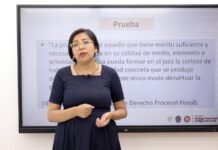
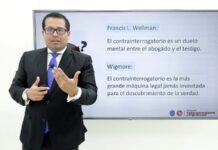
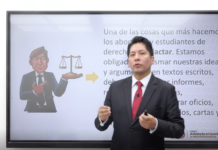
![TC establece reglas para determinar qué no es información pública (doctrina jurisprudencial vinculante) [Exp. 04106-2022-PHD/TC]](https://img.lpderecho.pe/wp-content/uploads/2024/03/tribunal-constitucional-5-LPDerecho-218x150.jpg)
![Notificación por correo electrónico de separación definitiva de la Universidad (desaprobación de un curso por cuarta vez) no viola el debido proceso [Exp. 03903-2024-PA/TC]](https://img.lpderecho.pe/wp-content/uploads/2024/03/tribunal-constitucional-4-LPDerecho-218x150.jpg)
![TC rechaza amparo de Patricia Benavides contra resoluciones de la JNJ por sustracción de la materia [Exp. 01643-2025-PA/TC]](https://img.lpderecho.pe/wp-content/uploads/2024/12/Patricia-Benavides-fondo-del-TC-lp-derecho-218x150.jpg)
![Si bien las audiencias son públicas y su retransmisión por redes forma parte del «derecho a la libertad de información y expresión», este no es absoluto, pues conlleva la divulgación de información personal e imagen de los intervinientes (encausados y agraviados) [Exp. 01162-2025-3, pp. 4, 5]](https://img.lpderecho.pe/wp-content/uploads/2025/07/JUEZ-FIRMANDO-DOCUMENTO-LPDERECHO-218x150.jpg)
![Ley Orgánica del Registro Nacional de Identificación y Estado Civil (Ley 26497) [actualizada 2025]](https://img.lpderecho.pe/wp-content/uploads/2025/05/Ley-organica-del-registro-nacional-de-identificacion-y-estado-civil1-LPDERECHO-218x150.jpg)











![Causales de extinción del usufructo (artículo 1021 del Código Civil) [ACTUALIZADO 2025]](https://img.lpderecho.pe/wp-content/uploads/2020/09/POST-causales-usufructo-LPDerecho-218x150.png)
![Derechos reales: todo lo que debes saber de la «copropiedad» [ACTUALIZADO 2025]](https://img.lpderecho.pe/wp-content/uploads/2020/08/196-218x150.jpg)
![Extensión de la propiedad: subsuelo, sobresuelo y espacio aéreo (artículo 954 del Código Civil) [ACTUALIZADO 2025]](https://img.lpderecho.pe/wp-content/uploads/2020/08/157-218x150.jpg)
![¿Qué pasa con la construcción en terreno ajeno? [ACTUALIZADO 2025] ¿Qué pasa con la construcción en terreno ajeno?](https://img.lpderecho.pe/wp-content/uploads/2020/09/Que-pasa-con-la-construccion-en-terreno-ajeno-LP-218x150.png)

![¿En qué casos puede una entidad exigir el reembolso por asesoría legal a servidores? [Informe Técnico 000874-2025-Servir-GPGSC] cargo directivo](https://img.lpderecho.pe/wp-content/uploads/2023/01/Servir-trabajadores-laboral-supervision-2-LPDerecho-218x150.png)

![Precedente Servir sobre la aplicación del teletrabajo en entidades públicas [Resolución de Sala Plena 001-2025-Servir/TSC]](https://img.lpderecho.pe/wp-content/uploads/2025/03/SERVIR-LPDERECHO-218x150.jpg)

![Servir aprueba procedimiento para otorgar bono excepcional a trabajadores 276 [Resolución 000136-2025-Servir-PE]](https://img.lpderecho.pe/wp-content/uploads/2022/09/normas-legales-dinero-bono-subsidio-2-LPDerecho-218x150.png)
![JNJ rectifica tabla de puntaje para la evaluación curricular de juez especializado y fiscal provincial de control [Resolución 297-2025-JNJ]](https://img.lpderecho.pe/wp-content/uploads/2022/07/Junta-Nacional-de-Justicia-JNJ-LPDerecho-218x150.png)


![Reglamento de la Ley 30364 (Decreto Supremo 009-2016-MIMP) [actualizado 2025]](https://img.lpderecho.pe/wp-content/uploads/2024/07/Reglamento-de-la-Ley-30364-LPDERECHO-218x150.jpg)

![Código Procesal Penal peruano [actualizado 2025]](https://img.lpderecho.pe/wp-content/uploads/2024/02/VENTA-CODIGO-PENAL-BANNER-POST-TAPA-DURA-LPDERECHO-218x150.jpg)
![Reglamento sobre encuestas electorales durante los procesos electorales [Resolución 0107-2025-JNE]](https://img.lpderecho.pe/wp-content/uploads/2025/05/REGLAMENTO-ENCUESTAS-ELECTORALES-LPDERECHO-1-218x150.jpg)
![Diseño de la cédula de sufragio para la Consulta Popular de Revocatoria del Mandato de Autoridades Municipales 2025 [Resolución Jefatural 000031-2025-JN/ONPE]](https://img.lpderecho.pe/wp-content/uploads/2025/05/DISENO-CELULA-SUFRAGIO-REVOCATORIA-LPDERECHO-218x150.jpg)


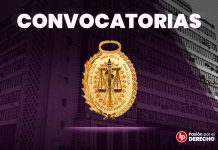

![[VIDEO] Juez propone que todos los delitos se tramiten en unidades de flagrancia, sin excepción](https://img.lpderecho.pe/wp-content/uploads/2025/05/DELITOS-PLANTEA-TABOA-LPDERECHO-218x150.jpg)
![[VIDEO] Hay jueces que rechazan cautelares porque «el caso es complejo», advierte Giovanni Priori en LP](https://img.lpderecho.pe/wp-content/uploads/2025/05/JUECES-RECHAZAN-CAUTELARES-GIOVANNI-LPDERECHO-218x150.jpg)
![[VIDEO] Pedro Castillo podría buscar asilo político si enfrenta el juicio en libertad, advierten Benji Espinoza y Elio Riera](https://img.lpderecho.pe/wp-content/uploads/2025/05/PEDRO-CASTILLO-ASILO-ABOGADOS-LPDERECHO-218x150.jpg)


![EXP. N.° 0022-2009-PI/TC LIMA GONZALO TUANAMA TUANAMA Y MÁS DE 5000 CIUDADANOS SENTENCIA DEL TRIBUNAL CONSTITUCIONAL En Lima, a los 09 días del mes de junio de 2010, el Tribunal Constitucional en sesión de Pleno Jurisdiccional, con la asistencia de los magistrados Mesía Ramírez, Beaumont Callirgos, Vergara Gotelli, Landa Arroyo, Calle Hayen, Eto Cruz y Álvarez Miranda, pronuncia la siguiente sentencia con los fundamentos de voto de los magistrados Vergara Gotelli y Landa Arroyo, que se agregan. ASUNTO Demanda de Inconstitucionalidad interpuesta por Gonzalo Tuanama Tuanama, en representación de más de 5000 ciudadanos contra el Decreto Legislativo N.° 1089. DEMANDA Y CONTESTACIÓN a) Demanda contra el Decreto Legislativo N.° 1089, que regula el Régimen Temporal Extraordinario de Formalización y Titulación de Predios Rurales Con fecha 01 de julio de 2009, se interpone demanda de inconstitucionalidad contra el Decreto Legislativo N.° 1089, que regula el Régimen Temporal Extraordinario de Formalización y Titulación de Predios Rurales, publicada en el diario oficial El Peruano el 28 de junio de 2008. Los demandantes refieren que “'sin entrar al fondo del contenido de la norma”, ésta fue promulgada sin efectuar ninguna consulta previa e informada a los pueblos indígenas, tal como lo ordena el Convenio 169 de la Organización Internacional De Trabajo (OIT), afectándose con ello los derechos fundamentales de los pueblos Indígenas, como el derecho a la consulta previa y el derecho colectivo al territorio ancestral, establecidos en los artículos 6, 15, 17 del mencionado convenio. De igual forma, expresan que no se tomaron en cuenta los artículos 19, 30 y 32 de la Declaración de las Naciones Unidas sobre los Derechos de los Pueblos Indígenas (DNUDPI) aprobado por la Asamblea General de la Organización de Naciones Unidas. Alegan que con dicha norma se afectan otros derechos establecidos en el Convenio N.° 169, como el derecho sobre las tierras de los pueblos indígenas (artículos 13 al 19), en el considerando que no se tomaron en cuenta medida que garanticen la protección de sus derechos de propiedad y posesión. Refieren que se afecta también el derecho a la libre determinación de las comunidades nativas, previsto en el artículo 17 del Convenio, que declara el respeto de sus formas tradicionales de transmisión de sus territorios. Por último, alegan que se estaría vulnerando lo previsto en el artículo 19 del Convenio en cuanto se afecta el derecho al desarrollo de políticas agrarias adecuadas para los pueblos indígenas. [Continúa...] Descargue la resolución aquí](https://img.lpderecho.pe/wp-content/uploads/2023/01/Logo-LP-con-fondo-guinda-LPDERECHO-1068x561.png)
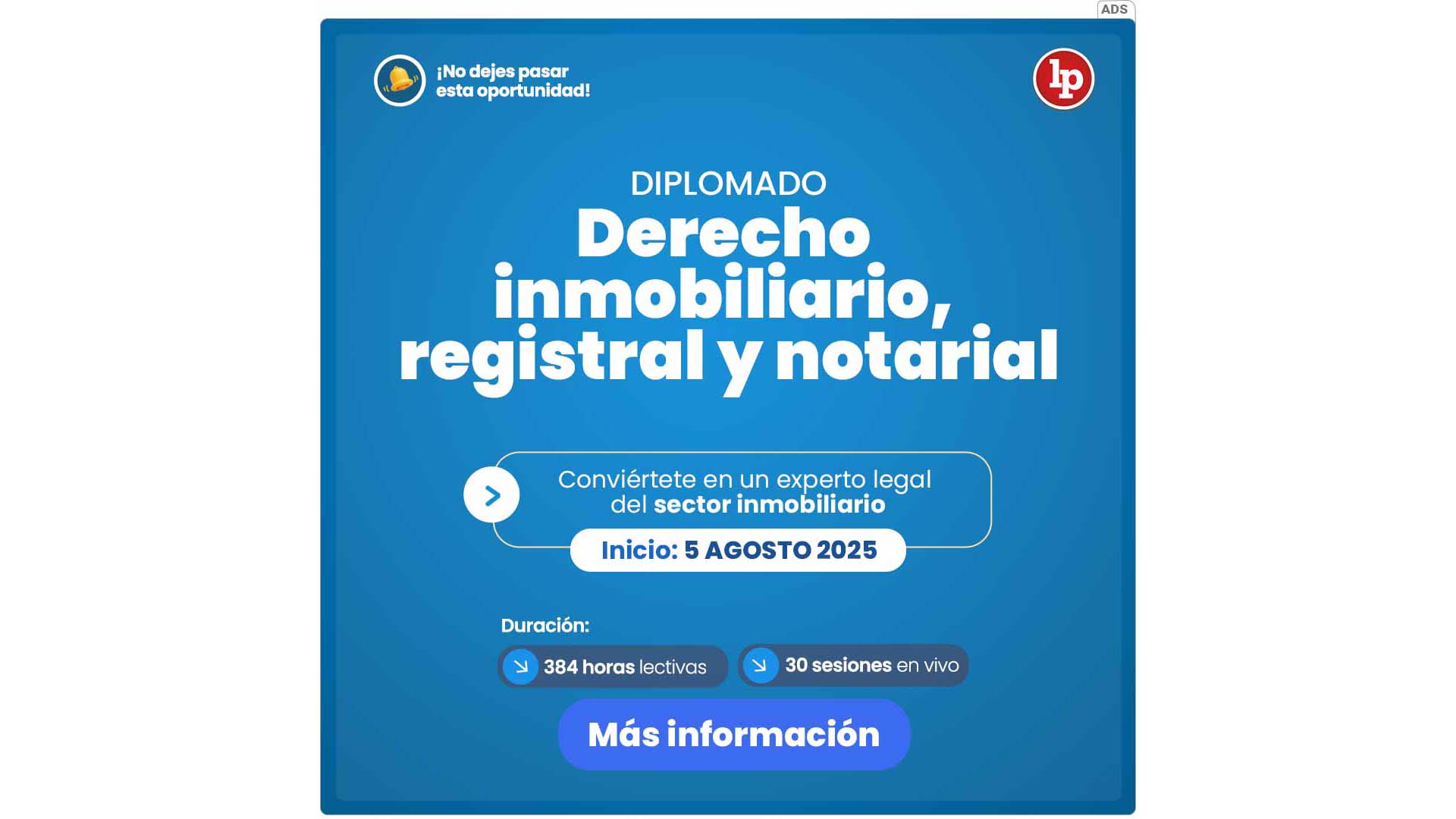

![TC: Aplicar «sorteo» para determinar el orden de los comerciantes para elegir ubicaciones disponibles para sus labores resulta irrazonable y desproporcional [Exp. 01992-2021-PA/TC, ff. jj. 12, 13]](https://img.lpderecho.pe/wp-content/uploads/2025/08/TC-AMPARA-AMBULANTE-LPDERECHO-218x150.jpg)


![Servir aprueba procedimiento para otorgar bono excepcional a trabajadores 276 [Resolución 000136-2025-Servir-PE]](https://img.lpderecho.pe/wp-content/uploads/2022/09/normas-legales-dinero-bono-subsidio-2-LPDerecho-100x70.png)
![Código Penal peruano [actualizado 2025]](https://img.lpderecho.pe/wp-content/uploads/2024/05/VENTA-CODIGO-PENAL-LPDERECHO-100x70.jpg)
![Código Procesal Penal peruano [actualizado 2025]](https://img.lpderecho.pe/wp-content/uploads/2024/02/VENTA-CODIGO-PENAL-BANNER-POST-TAPA-DURA-LPDERECHO-100x70.jpg)
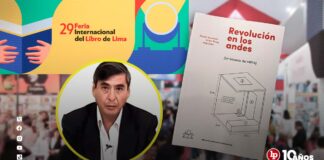
![Causales de extinción del usufructo (artículo 1021 del Código Civil) [ACTUALIZADO 2025]](https://img.lpderecho.pe/wp-content/uploads/2020/09/POST-causales-usufructo-LPDerecho-100x70.png)
![Derechos reales: todo lo que debes saber de la «copropiedad» [ACTUALIZADO 2025]](https://img.lpderecho.pe/wp-content/uploads/2020/08/196-100x70.jpg)

![Extensión de la propiedad: subsuelo, sobresuelo y espacio aéreo (artículo 954 del Código Civil) [ACTUALIZADO 2025]](https://img.lpderecho.pe/wp-content/uploads/2020/08/157-100x70.jpg)






